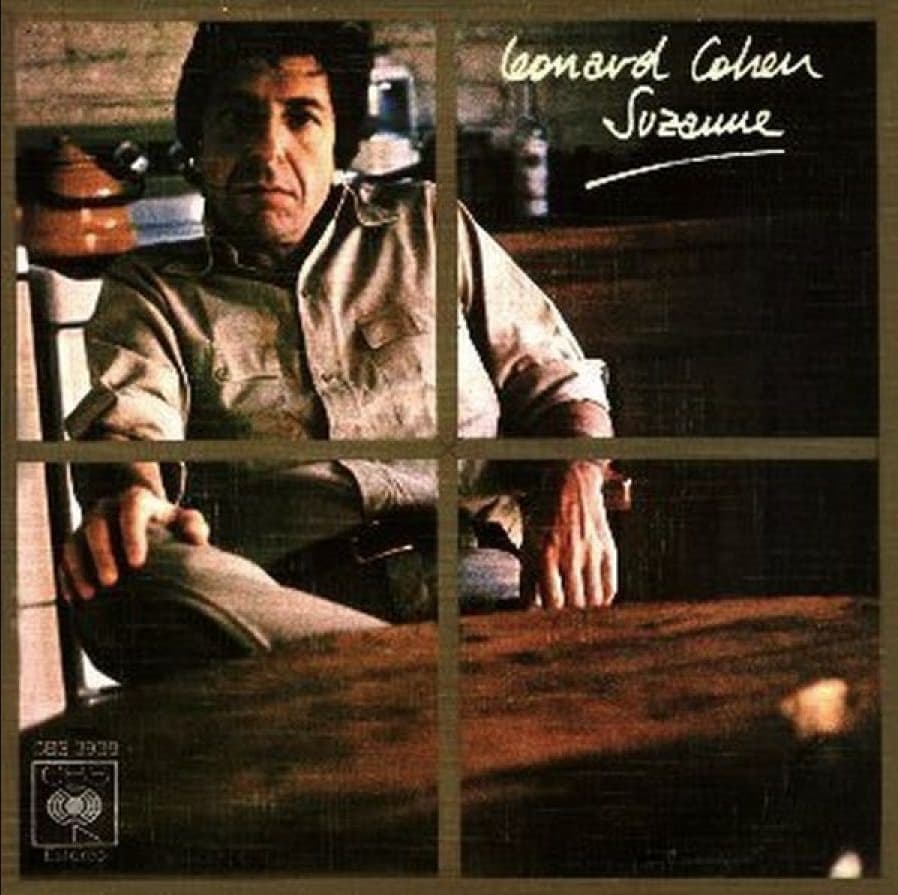
Leonard Cohen – “Suzanne”: A Poetic Journey of Love, Spirituality, and Connection
Leonard Cohen’s “Suzanne” is a hauntingly beautiful ballad that blends themes of love, spirituality, and human connection with the evocative imagery of a poet’s touch. Released in 1967 on Cohen’s debut album, Songs of Leonard Cohen, the song has become one of his most iconic works, celebrated for its introspective lyrics and ethereal melody. Based on Cohen’s relationship with Suzanne Verdal, a platonic muse, “Suzanne” captures the essence of deep, transcendent connection in a way that is both intimate and universal.
The song opens with a delicate acoustic guitar line, immediately setting a serene and meditative tone. The simplicity of the instrumentation draws the listener into the world of the song, allowing the lyrics to take center stage. Cohen’s fingerpicking style is understated yet intricate, creating a sense of intimacy that mirrors the deeply personal nature of the narrative.
Lyrically, “Suzanne” is a vivid tapestry of imagery and emotion, divided into two main threads: the narrator’s relationship with Suzanne and his reflections on spirituality, particularly through the figure of Jesus. The first verse introduces Suzanne, described with a sense of reverence and fascination: “Suzanne takes you down to her place near the river / You can hear the boats go by, you can spend the night beside her.” The sensory details in the lyrics evoke a dreamlike atmosphere, immersing the listener in the narrator’s experience of Suzanne’s enigmatic charm.
The chorus, “And you want to travel with her, and you want to travel blind,” captures the essence of surrendering to trust and connection, whether with another person or with a higher power. This refrain is both poignant and mysterious, encapsulating the song’s exploration of vulnerability and the longing for something beyond oneself.
The second verse transitions into a reflection on Jesus, blending spiritual imagery with human emotion. Lines like “And Jesus was a sailor when he walked upon the water” juxtapose the divine and the earthly, suggesting a sense of universality in both spiritual longing and personal relationships. The verse bridges the gap between the sacred and the profane, a recurring theme in Cohen’s work, and adds depth to the song’s narrative.
Cohen’s vocal delivery is understated yet profoundly emotional. His deep, gravelly voice imbues the lyrics with a sense of gravity and authenticity, making each line feel like a personal confession. His performance is restrained, allowing the beauty of the words and melody to shine through without unnecessary embellishment.
The musical arrangement is minimalist, featuring Cohen’s acoustic guitar accompanied by soft, subtle background vocals. This simplicity enhances the song’s introspective quality, creating an intimate listening experience that feels timeless and universal. The sparseness of the arrangement mirrors the purity of the song’s themes, ensuring that the listener’s focus remains on the lyrics and melody.
Since its release, “Suzanne” has become one of Leonard Cohen’s most celebrated songs, covered by countless artists, including Judy Collins, Nina Simone, and Joan Baez. Each rendition brings a unique interpretation, but Cohen’s original remains definitive, capturing the song’s essence with unparalleled sincerity and depth.
“Suzanne” has also transcended its origins as a song, becoming a cultural touchstone for its exploration of love, faith, and the human condition. Its ability to evoke profound emotion while remaining open to interpretation has ensured its enduring relevance, making it a favorite among fans of poetry and introspective music.
In the end, “Suzanne” is more than just a song—it’s a meditation on connection, longing, and the mysteries of existence. Leonard Cohen’s poetic lyrics, paired with his intimate performance and elegant melody, create a work of art that continues to resonate with listeners across generations. For fans of deeply personal and thought-provoking music, “Suzanne” is a masterpiece that invites repeated listening and endless reflection.